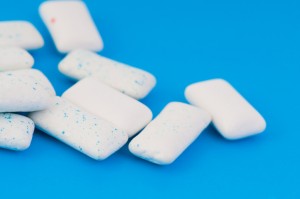 How much do you think you influence your little one? If you think the answer is “Not much,” guess again. According to a study published by the Journal of Dental Research, parents have an enormous amount of influence on their children, and that extends to areas of health and wellbeing. The study found that if a mother had a cavity, her child was twice as likely as other children to also have a cavity.
How much do you think you influence your little one? If you think the answer is “Not much,” guess again. According to a study published by the Journal of Dental Research, parents have an enormous amount of influence on their children, and that extends to areas of health and wellbeing. The study found that if a mother had a cavity, her child was twice as likely as other children to also have a cavity.
The takeaway? Teaching your son or daughter about brushing and flossing—not to mention practicing what you preach—can help your child develop healthy habits that will stick with them throughout their life.
Also important are regular dental visits every six months. Regular visits will give your doctor a chance to look for common oral health conditions and provide treatment if necessary. Conditions like gum disease and tooth decay need to be caught early so they can be treated quickly, before they have a chance to become more serious.
How long has it been since you or your child saw a dentist for a regular visit? If it’s been more than six months, call your local dental office today to reserve an appointment. During your and your child’s visit, your doctor can talk to you both about brushing and flossing and can offer helpful advice you both can use on a daily basis.
Remember, the behavior you model at home makes a real difference. Help your child develop diligent brushing habits by demonstrating them yourself.
 When asked to come up with a list of foods that dentists hate, gum will almost certainly appears in your top five. After all, this sticky, chewy candy can leave your jaw sore and work its way into tricky places in your smile – not to mention that it’s a natural enemy of traditional braces. But have you heard that the treat can actually improve the health of your teeth and gums instead of hurting them? It’s true! The American Dental Association has officially recognized that specific types of sugarless chewing gum have been scientifically proven to bolster optimal dental health.
When asked to come up with a list of foods that dentists hate, gum will almost certainly appears in your top five. After all, this sticky, chewy candy can leave your jaw sore and work its way into tricky places in your smile – not to mention that it’s a natural enemy of traditional braces. But have you heard that the treat can actually improve the health of your teeth and gums instead of hurting them? It’s true! The American Dental Association has officially recognized that specific types of sugarless chewing gum have been scientifically proven to bolster optimal dental health.